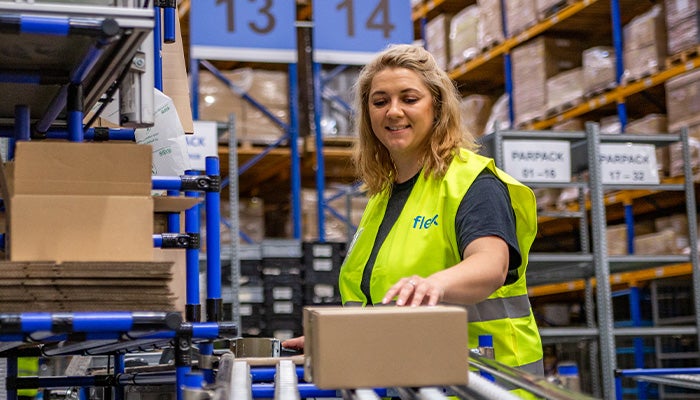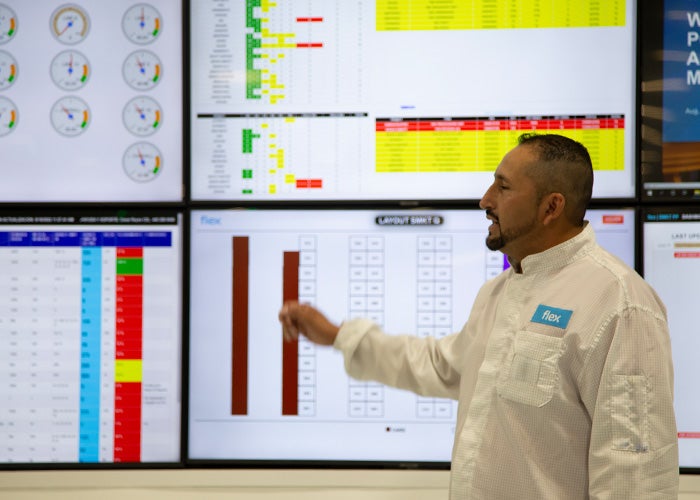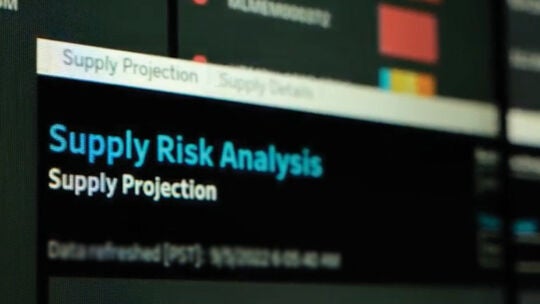
Resilience is not one size fits all, nor is it a single rigid approach. It is an ongoing, evolving process that continuously assimilates lessons learned, responds to the current environment, and looks ahead to potential issues in the future.
We constantly test and develop our flexibility, visibility, and collaboration capabilities from procurement through last mile delivery. Doing so allows us to perpetuate de-risking using mitigation strategies for our customers, suppliers, and markets.

Partner with us to create supply chain resilience, then streamline and optimize your full product lifecycle to deliver full value.
Our forward logistics and value-added fulfillment connects manufacturing to end customers across multiple channels. Our reverse logistics and circular economy solutions — a customized set of services inclusive of a repair, recovery, refurbishment, and recycling portfolio — correspond with your organizational goals while opening up new revenue streams.
When combatting rising tariffs, increased labor costs, geopolitical instability, and other macro challenges, leading brands have turned to regionalized supply chains as a valuable strategy to mitigate risk and increase flexibility.
And it is our diverse supply chain network, combined with our deep expertise and global footprint, that allows them to realize the benefits of regionalization.
We can help determine when and how to move closer to where you are located and help you leverage our in-region manufacturing and forward-logistics and value-added fulfillment capabilities.

We offer manufacturing at scale at approximately 100 sites across 30 countries. Our global presence provides you the flexibility of sourcing components and building products in region — or rapidly shifting production to other worldwide locations as demand or regulations change.
By creating one of the world’s largest and most diverse supply chain networks, we can respond to evolving regional, trade, and manufacturing dynamics.
Our scale and geographic breadth address logistical and sourcing challenges in any region across the globe.
We work closely with suppliers to understand how and where they source their materials.
Analyzing supply network data and presenting that information in an actionable manner enables us to build more resilient supply chains. Our supplier relationship management tools are built on Ivalua, allowing us to collaborate with suppliers on full end-to-end procurement, supply chain, and quality processes.

Our services meet the demands of most fulfillment networks in any region.
Agile capabilities in B2B, B2C, D2R, and D2C meet evolving end customer requirements while configure-to-order (CTO) postponement activities lower inventories, increase velocity, and ensure high fill rates to multiple channels.
Flex Pulse Actionable Insights provides robust data visualization and enables real-time supply chain management. The cloud-based intelligent software tool integrates feeds from more than 200 data sources to help you identify and navigate the most complex supply chain challenges.

We provide visibility down to the product level at any given factory. Stakeholders can access the same level of data precision and visibility whether they are physically located in one of our Pulse centers worldwide or logging in remotely through secure digital, mobile, or cloud-based technologies. This means our more than 7,000 supply chain professionals globally are always equipped with the insights they need to make intelligent decisions.
Actionable Insights continuously syncs, ensuring data collection and visualization that is as close to real-time as possible.
Should I manufacture my product in Mexico or Taiwan? What are my distribution and shipping trade-offs? Is the demand for my product short-term or long-term, and how can I optimize my delivery operations to accommodate demand flow? These complex calculations are often top of mind for every Flex manufacturing customer.

Flex Pulse Network Design enables Flex and our customers to manage high-level supply chain network design. The tool creates forecasting scenarios based on current and future projections of multiple factors, including estimated inflation rates, crude oil prices, labor costs, and other macroeconomic indicators. Our data-driven analyses and recommendations empower our customers to configure the optimal manufacturing and distribution footprint for unique profiles and distribution channels.

A significant portion of supply chain risks manifest in the design and product testing phases but are often overlooked until later in the planning and building phases. At this point, they can cause major complications and drastically increase costs. That’s why true supply chain resiliency requires early, proactive risk assessment rather than waiting until it’s too late.
Our Flex Pulse Risk Management automated analytics tool provides clear, quantifiable, and actionable insights into the part-level, identifying supply chain risks early in the lifecycle. The tool automatically assesses quotes, generates reports of potential risks, and provides recommendations for risk mitigation strategies.





